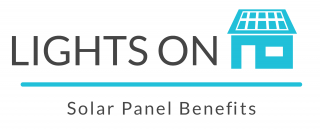Solar power refers to the conversion of sunlight into electricity using photovoltaic (PV) panels or concentrated solar power (CSP) systems. It is a renewable and sustainable energy source that has gained popularity due to its numerous environmental and economic benefits.
Here’s a breakdown of how solar power works:
- Solar Panels: Photovoltaic panels are made up of multiple solar cells, typically made of silicon. When sunlight hits these cells, it excites electrons, creating an electric current. This process is known as the photovoltaic effect.
- Inverter: The direct current (DC) electricity generated by the solar panels needs to be converted into alternating current (AC) electricity, which is what most appliances and the power grid use. An inverter performs this conversion.
- Grid Connection (Optional): Solar power systems can be connected to the electrical grid, allowing excess electricity generated during the day to be exported to the grid for credit or compensation. Conversely, electricity can be drawn from the grid when solar production is low, such as at night.
- Battery Storage (Optional): Some solar power systems include battery storage to store excess electricity generated during the day for use during periods of low sunlight or at night. This allows for greater energy independence and resilience during power outages.
- Usage: The electricity generated by solar panels can be used to power homes, businesses, and even entire communities. It can be used for everything from lighting and heating to running appliances and charging electric vehicles.
Solar power offers several advantages:
- Renewable: Solar energy is a virtually limitless resource. As long as the sun continues to shine, we can harness its energy.
- Environmentally Friendly: Solar power produces no greenhouse gas emissions or air pollutants during operation, unlike fossil fuels.
- Cost-Effective: The cost of solar panels has decreased significantly in recent years, making solar power increasingly affordable. Additionally, once installed, solar panels have minimal operating costs.
- Energy Independence: By generating your own electricity from solar power, you reduce dependence on traditional utility companies and fossil fuels.
- Job Creation: The solar industry creates jobs in manufacturing, installation, maintenance, and research, contributing to economic growth.
Overall, solar power plays a crucial role in transitioning to a more sustainable and environmentally friendly energy future.
In this blog, you can find the topics about:
And more to come!

